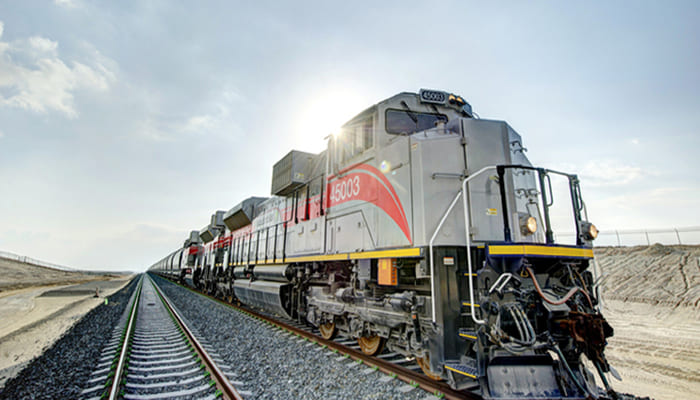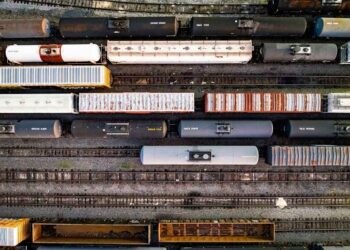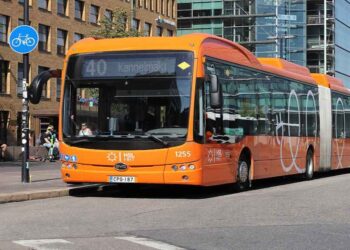The UAE National Rail Network’s developer and operator, Etihad Rail, has declared the completion of the link between the Industrial City of Abu Dhabi’s railway freight terminal and the UAE National Rail Network.
It will consist of around 22 buildings and significant structures, covering slightly over 2.7 million square feet, to support operations, handling up to nine trains each day. The emirate wants to offer an integrated transportation system that supports the nation’s sustainable economic development. It is the largest inland freight train station in the nation.
The company finished tracklaying tasks and successfully tested the new line, which runs through important industrial hubs and urban areas as it travels from Saudi Arabia’s borders to the port of Fujairah on the country’s eastern coast.
This most recent accomplishment is consistent with the objectives of the UAE Railway Plan, which is the largest integrated system for moving people and products throughout the nation. The programme intends to link the nation’s major production and industrial hubs, open up new trade routes, and ease population migration.
After Stage Two of the UAE National Rail Network is finished, Etihad Rail will offer logistical services out of the railroad terminal, which is situated in the centre of Abu Dhabi’s Industrial City, a cluster of industrial businesses. According to Mohammed Al Marzouqi, executive director of the rail relations sector at Etihad Rail, “connecting the railway freight terminal at ICAD with Etihad Rail’s main line guarantees their readiness to begin offering their clients with logistics services by connecting Abu Dhabi with numerous industrial centres and import and export points. This accomplishment moves them one step closer to realising their vision of an integrated transportation network linking ports and freight terminals with manufacturing and industrial hubs throughout the emirates. As the largest indoor railway freight terminal in the UAE, the ICAD railway freight terminal’s prime position will benefit all of their clients.
By providing a favourable socioeconomic impact on business, industry, the environment, and more, it will enhance the sustainable growth that they are seeing throughout the UAE. When finished, the freight terminal will make it easier to distribute goods among the Gulf Cooperation Council (GCC) nations and the United Arab Emirates (UAE). It will link industrial areas in the Musaffah region with quarries in the northern emirates, as well as Ruwais, Khalifa Port, and the container businesses in Dubai within Jebel Ali Port.
The containers will first travel by road to the final destination for the end user before travelling by rail to and from other freight facilities.
The railway freight terminal will serve as a logistics centre for large companies, permitting better linkages to crucial trade infrastructure, such as ports, as well as the seamless transfer of raw materials and equipment for manufacturers. Additionally, it will offer customs services, boosting the tenants of ICAD’s competitiveness.
The brand-new railway freight terminal, which is going to be open twenty-four hours a day, seven days a week, will give businesses a number of competitive advantages in terms of transportation costs and sustainability. The ICAD railway freight terminal will process approximately 15 million tonnes of raw materials, 1.5 million tonnes of general cargo, and over 116,600 20-foot shipping containers annually once it is fully operational. This will promote more efficient, affordable, and sustainable transportation capacity.
Stage 2 of the UAE’s national railway network includes the construction of the ICAD railway freight terminal. The historic undertaking stretches from Al, near Saudi Arabia’s borders, to the emirate of Fujairah, on the eastern coast. Stage two of the GCC’s railway network will eventually connect the country’s ports, industrial hubs, and urban areas.


































